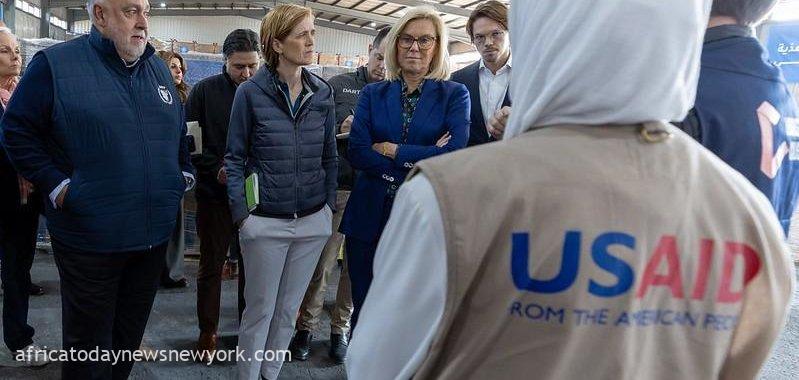The government of the United States has lashed Zimbabwe of harassing, detaining and deporting several of its nationals who were in the country as aid workers.
The US Agency for International Development (USAID) said government officials and contractors had been “verbally and physically” intimidated.
They were there to “support civic participation, democratic institutions and human rights”, the agency added.
But Zimbabwe’s commitment to democratic reform was “hollow”, it said.
The Zimbabwean government has not yet commented on USAID’s allegations.
On Monday, the US announced fresh sanctions on Zimbabwe’s President Emmerson Mnangagwa and other senior government officials, whom it accuses of corruption and human rights abuses.
Read Also: Ask Zimbabwe For Solution To Inflation, Obasanjo Urges Tinubu
These replaced existing sanctions imposed two decades ago.
A spokesperson for President Mnangagwa condemned the sanctions as “hostile” actions and accused the US government of “gratuitous slander”.
In a statement, USAID’s administrator, Samantha Power, said that some of its members had been subjected to “overnight detention, transportation in unsafe conditions, prolonged interrogation, seizure of and intrusion into personal electronic equipment”.
Ms Power went on to say that this event followed other “serious incidents” over the past two years, in which US government officials and citizens were subjected to “harassment and improper treatment” from Zimbabwean authorities.
In a separate statement, Matthew Miller, a spokesman for the US State Department said that the aid team were legally admitted to Zimbabwe to “support the government of Zimbabwe’s expressed commitment to democratic reform”, something Ms Power called a “hollow” commitment.
Recall that the government of the United States had last week slammed sanctions on the President of Zimbabwe, Emmerson Mnangagwa, along with other senior officials, over corruption allegations and human rights abuses.
The US government on Monday claimed that they can confirm that leaders in Zimbabwe were siphoning off public resources for personal gain.
This move scraps the old executive sanction order introduced in 2003 and moves 11 individuals and three entities onto the global list – the Global Magnitsky sanctions program.

